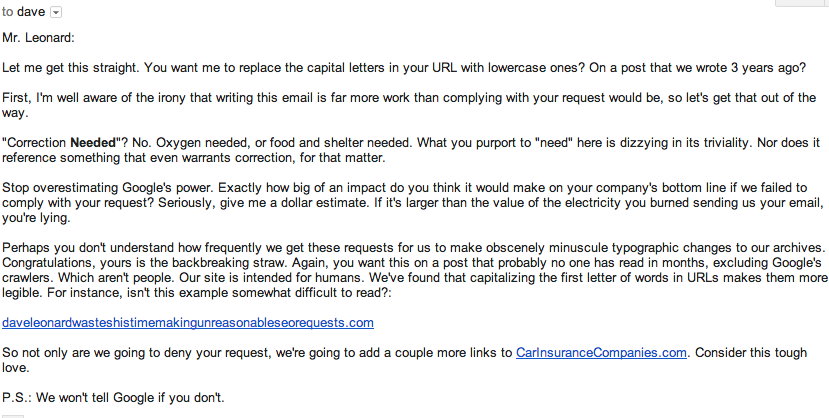If you missed last week’s Carnival of Wealth…well, you weren’t the only one.
First, the excuse: we use a couple of hosting services to organize the carnival submissions for us. One of those services has been down for a while now, the other one takes submissions and watches them disappear into the ether. So we should have been suspicious when Sunday night came around and we’d received posts from a grand total of 2 sites, one of them with only a tenuous connection to personal finance. Thank God we’ve developed the ability to filibuster. The next morning, many of our regular submitters asked where their offerings had vanished to. We couldn’t have been more embarrassed. (Shout out to anyone who has a site and wants to submit – from now on just email us.) In fact, we were so abashed by our sparse Carnival of Wealth last week that we punished ourselves with a 1-day sabbatical. So here’s how good our feature attraction, our carnival can look with an extra 24 hours of preparation behind it:
Let’s start with the man who’s done more to earn top billing at Control Your Cash than anyone, Jason at Hull Financial Planning. If you heard our most recent appearance on the Stacking Benjamins podcast, you’ll know how little we think of the “news” that high-frequency trading is a scourge created by the amorphous evil entity collectively known as Wall Street, designed to profit off everyday investors. Yes, high-frequency trading takes advantage of market inefficiencies in fantastically short time periods. The difference between buying XYZ stock at 19 and buying it at 18.999 can mean significant profits if you’re dealing in institutional-sized quantities. (It can also mean significant losses, but the kind of gullible septuagenarians who watch 60 Minutes aren’t interested in that.) For investors of ordinary means, minor discrepancies in price will have a negligible effect on the buy-and-hold strategy you should be using.
Or as Jason pointed out, high-frequency traders pocket a percentage of the total value of all stock market transactions. How big a percentage? .02. Or the equivalent of the price of Michael Lewis’s new book on an investment of $140,000.
How smart is Nelson at Financial Uproar? Too smart to have gone to college. (You people with 5-figure student loan balances didn’t think such a thing could exist, did you? What a shame that your post-secondary educations never afforded you the opportunity to exercise your imaginations.) This week Nelson pounces on some idiot ex-journalist who wrote a book about his discomfort working at a retail job, the man held me down, barely a living wage, insufficient health insurance, capitalism blows, etc., etc. Nelson, again not bogged down by a college degree and the unrealistic expectations that accompany it, managed to turn what could have been a dead-end retail career into unqualified success. Nelson also didn’t slap his ex-wife around, something the journalist should have thought of before it forced him to change careers. See how simple most of this stuff is?
Who likes uncompensated labor? Aside from every employer in the world, that is. Pauline Paquin at Make Money Your Way has plenty to say about internships; how they’re offered as an investment (12 weeks in the boiler room at Goldman Sachs will lead to a fast-track first-year salary) when the reality is something quite different. Pauline explains why you shouldn’t work for nothing to gain experience, save for very rare exceptions (specifically, what used to be called professions: medicine, etc.) Pauline is debt-free, owns multiple revenue-producing properties, and lives on the beach in Guatemala, so it might behoove you to listen to her. (Then again, she isn’t a college admissions officer or a corporate recruiter, so she can’t possibly know what she’s talking about.)
Two more submissions, both of them stellar. Justin at Root of Good retired in his 30s, and now has the rest of his life in which to trot the globe and raise his kids. Is early retirement with mouths to feed the way to go? Personally, we’d rather work and not reproduce (if forced to choose), although we do understand that we’re in a statistically insignificant minority. Justin explains how to balance the economic and parental parts of your life without compromise.
Finally, PKamp3 at DQYDJ.net shows us the ramifications of Poe’s Law in practice. The internet has desensitized us to sincerity, to the point where legitimately held extreme beliefs and parodies of the same can be hard to tell apart. If you’re a fan of horribly written blogs with uninteresting content, this post is for you, and please understand what we mean by that. (You’ll have to read his post to find out.)
Thanks for coming. Another Carnival of Wealth next Monday, we swear. And a new post later this week.







